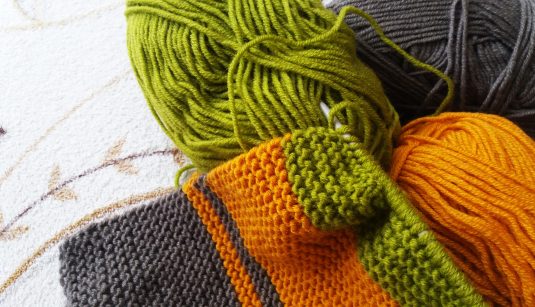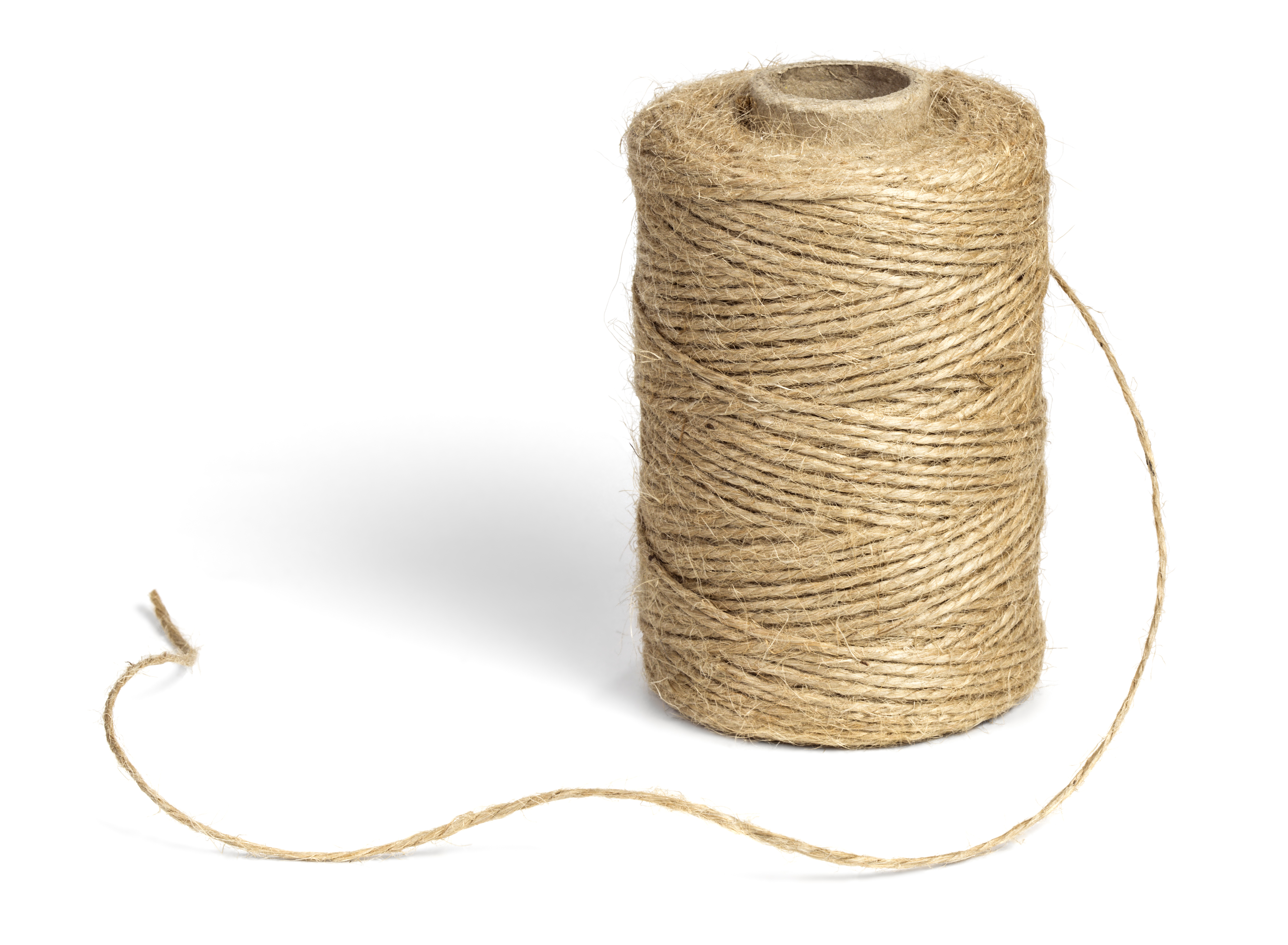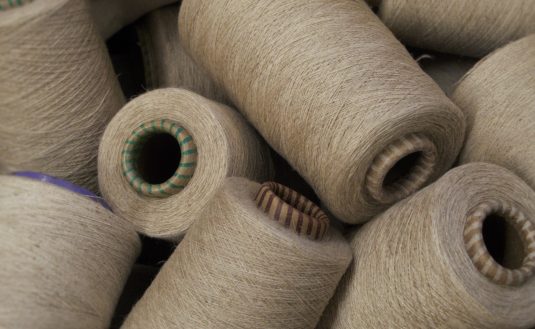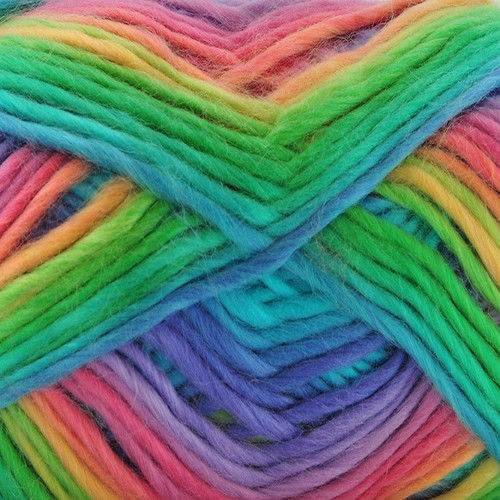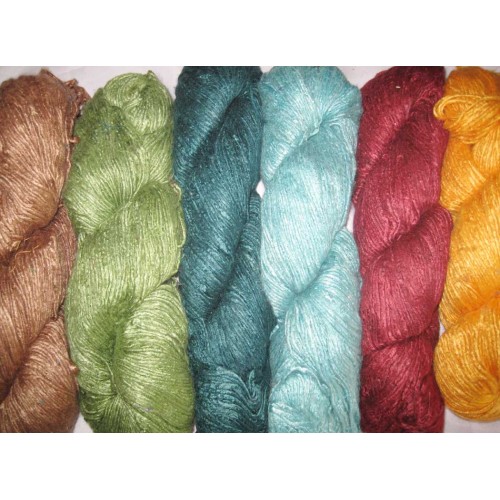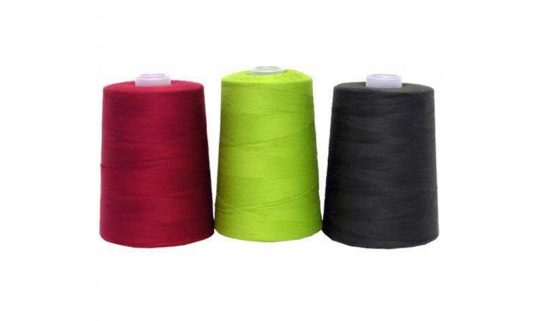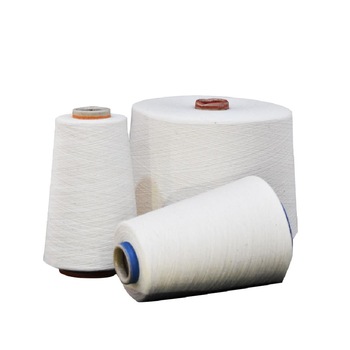Spun yarns are a series of short staple interlocked fibers that are utilised for the production of textiles, sewing, crocheting, knitting, weaving, embroidery, and rope making. Thread is a category under spun yarns which is used for hand woven fabrics or fabrics that are sewn by machineries. Spun yarns can be obtained from a number of natural or synthetic fibers. Cotton and polyester are the most commonly spun fibers across the globe. Cotton is cultivated, harvested, ginned, and prepared for yarn spinning in a lot of continents and nations. Polyester are extruded from the polymers obtained from natural gas and oil. Nylon and Acrylic are also used for producing spun yarn which are commonly used in flat knitting industry to make sweaters.
Spun yarn is produced by twisting staple fibers together to obtain a cohesive thread. They may contain a single type of fibre, or can be a blend of various types of fabrics. There are various deciding factors on the basis of which, the ideal Yarn is selected. Characteristics such as warmth (wool), lightweighted (cotton or rayon), durability (nylon), or softness (cashmere) are often taken into consideration. Spun yarns are available as ring spun, Open end, Vortex , Air-Jet which are different technologies to produce such yarns.
-
- Spun Yarns, Yarns
- Blended Yarn
- Technically, the blended yarn is the yarn which has several types of fibers blended together. They exude a blended characteristic which is completely unique. Mainly, two or more constituents are blended together to get a desired product.
- Read more
-
- Spun Yarns, Yarns
- Jute Yarn
- Jute is known for its natural earthy appearance and superior durability. The key functions of a jute spinning unit is to transform jute fibres into yarns for various uses. The kinds of jute yarns manufactured are classified according to their applications.
- Read more
-
- Spun Yarns, Yarns
- Linen Yarn
- Linen is essentially obtained from the flax plant. The material can dry quickly and constitutes of strong and durable shreds. Due to their absorbent nature, garments manufactured out of lenin are soft and breathable. Linen is typically spun into yarns and woven or knit to create linen textiles. These textiles can are then bleached, dyed, printed, or finished with a…
- Read more
-
- Spun Yarns, Yarns
- Acrylic Yarn
- Acrylic is a synthetic material which can be used for a wide scope of manufacturing practices. Acrylic can be converted into yarn or fabric as well as many other types of blends. It is essentially, a man-made, synthetic fiber which is comprised of at least 85% acrylonitrile. Acrylic Yarn is highly accessible, affordable and promises great durability. It can be…
- Read more
-
- Spun Yarns, Yarns
- Viscose Spun Yarns
- Viscose Spun Yarn is obtained from Viscose Staple Fibre which is extracted from plant cellulose , made from wood-pulp or cotton-pulp. Our manufacturing partners offer high quality Viscose Spun Yarns in Single, Double or Multifold plies for weaving, knitting, crochet, carpet piles and other industrial applications.
- Read more
-
- Spun Yarns, Yarns
- Polyester Spun Yarns
- Polyester Spun Yarn is produced in spinning process by combing short staple fiber. Polyester Spun Yarn is obtained from Virgin Polyester Staple Fiber or Recycled Polyester Staple. It is used for knitting & weaving fabrics. It is also used for manufacturing of sewing thread and embroidery yarn. It is available as Raw white & Dyed colors.
- Read more
-
- Spun Yarns, Yarns
- Cotton Yarn
- Cotton grows naturally on the tender and moist atmosphere. Cotton fiber is further produced into yarns and threads during the process of spinning. Cotton yarn, with its comfortable feel is widely used to produce fabrics for articles such as garments, bed-sheets, mattress, table cloths, terry-towels, bath-robes, socks etc.
- Read more


